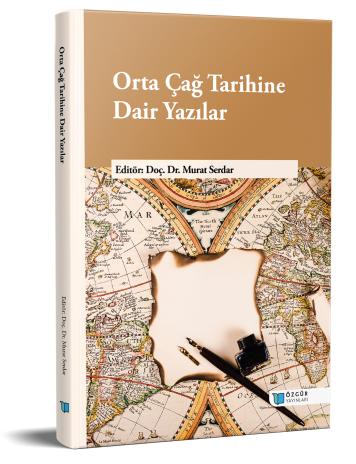
Essays on Medieval History
Synopsis
The Middle Ages cover a period of approximately a thousand years from the 5th century AD to the 15th century. Although the beginning and end dates of the Middle Ages differ among scientists who divide history into eras, in our cultural geography, it is generally accepted that it begins with the Migration of Tribes (375 AD) and ends with the conquest of Istanbul. This period includes many events that have influenced the formation of the known world. The masses moving from east to West with the Migration of Tribes shaped today's Europe, the birth of Islam brought a new breath to constructions trapped in superstition, and the rise of science in the Islamic world with the encouragement of science by the religion of Islam. The Crusades enabled the West, which was trapped in its vortex, to recognize Islamic Civilization and geography. The Mongols' March to the West brought many geographies together under the same roof, and epidemics (Black Death), whose cause and cure were unknown at the time, caused many people to die. Today, our country's medieval history studies are increasing rapidly, but unfortunately, they are not at the desired level. In this context, objectively addressing and interpreting historical developments during the Middle Ages is essential. This book includes four different studies brought together to contribute to medieval history. Although the studies in the relevant work are independent of each other in terms of subject and do not constitute a whole, they are gathered under the roof of medieval history. Each of the sections that make up the work consists of studies conducted by academics and researchers who are experts in their fields in the light of new sources. This work, which includes original studies in each section of the book, will contribute to the literature. The writing style, footnotes, and bibliographies in the texts in the work have been given in the same order as possible.
On the other hand, to protect the authors' originality, differences that do not disrupt the flow determined by the authors have been tolerated. The first section of the work, which consists of four sections, includes a study investigating "Dionysios Bar Ṣalibi's Refutation of Islamic Faith in His Work Luqbal Tayoye." The second section consists of a survey, "From Servitus Perpetua to Servi Camerae: The Legal Status of Jews in Medieval Germany." The third section includes a study on "A Crucible of Cultures: The Unique Social and Political Fabric of the Anatolian Seljuks and Its Legacy for the Türkiye Republic." The fourth section includes an independent study on "The Turkish Presence in Gujarat Until the Establishment of the Delhi Turkish Sultanate." We want to thank the academics and researchers who contributed to the relevant study by writing chapters, as well as Özgür Publications, which provided us with this opportunity by undertaking the publication of the book.

